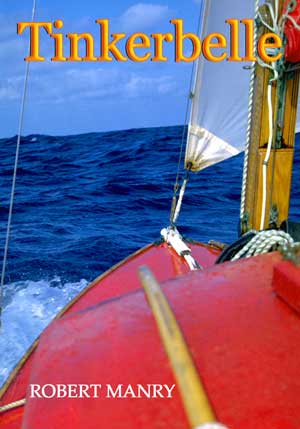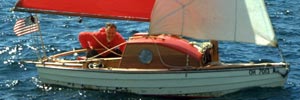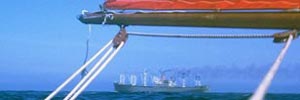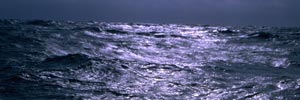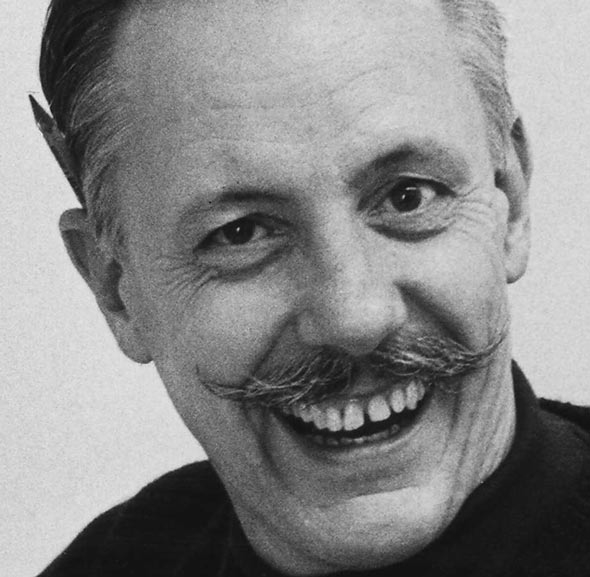
The Story of a Dream… That Came True!
Have you ever had a dream? A dream that became a wish? An idea that struck you in an instant, and blazed a fire of possibility in your mind? A “maybe someday” you’ve carried secretly for years? Do you still cling tightly to that light that shines within? Have you found a way to make your dream come true?
“The Manry story was so different, and so beautiful, because it was an adventure story, and a happy story, with no villains.”
– Bill Jorgensen
This is the story of just such a dream, and how it did come true. It’s the improbable tale of a schoolboy high in the mountains who dreamed of sailing across the seas and how his secret yearning shaped his life and the lives of many others.
The Man – Remembering Robert Manry
Life of a Dream – A few biographical notes on the life of Bob Manry…
Robert Neal Manry was born 2 June 1918, high in the Himalayas at Landour, India. He was the first of four children of Dr. James C. and Margaret Manry, and was soon followed by brother John and sisters Dorothy and Louise.
The family lived most of the year in Allahabad, Uttar Pradesh, where his father, a Presbyterian missionary, taught philosophy at Ewing College.
His earliest sailing adventures took place on the nearby Jumna River. He was an active child, and early on, showed an interest in many things, including animals, adventure and the arts. While at high school, he helped organize the Drama Club. One early role was as a pirate in “Treasure Island” where he appeared with a parrot on his shoulder. Although he apparently had never tried to teach the bird to speak, in the midst of a scene, the parrot began calling out, “Robert Manry! Robert Manry!”
In 1936 he left India to attend university in the United States, first stopping in Guangzhou (Canton), China, where he spent a semester at Lingnan University.
He departed China on 14 July 1937, the day before the Japanese attack at the Marco Polo Bridge near Beijing. That autumn he enrolled at Antioch College in Yellow Springs, Ohio.
During World War 2, Robert initially refused conscription, as a Conscientious Objector, and was jailed. Eventually he did serve, as a photographer, with the U.S. Army in Europe.
He returned to Antioch College after the war, and received a degree in Political Science in 1948. According to his daughter, Robin, he was briefly married after graduating from Antioch.
He worked as a reporter for several newspapers in Ohio and Pennsylvania, and married Virginia Place, of Pittsburgh, in 1950.
They moved to Cleveland in 1953 when he joined the staff of the Plain Dealer as a copy editor. Their daughter Robin was born in 1952 and son Douglas in 1954.
He purchased Tinkerbelle in 1958, made repairs and sailed her for the first time in 1959. During the following years, “Tink” was a constant companion and center of attention on family vacations.
Robert made his historic voyage across the Atlantic in 1965. He returned to Cleveland, but not to his job at the Plain Dealer. Rumors persisted that his employers never forgave him for being “scooped” by the competition, but it seems evident that he was merely taking advantage of his newfound opportunities. He enjoyed a successful career on the lecture circuit and spent several months completing a book about his adventure. In 1966, Tinkerbelle, published by Harper and Row, became an immediate bestseller.
In 1967, Robert began an odyssey around the eastern United States in a new boat, Curlew. His wife, children, and the family menagerie joined him on this voyage.
On 3 May 1969 Virginia died in a one-car accident near Youngstown, Ohio, while returning from a visit to her ailing mother in Pittsburgh, who died the following day.
In October 1970 Manry married Jean Flaherty of Pittsburgh.
On 21 February 1971 Robert Manry died of a massive heart attack after dinner with friends in Union City, Pennsylvania. He was 52. He is buried in Mt. Lebanon Cemetery in Mt. Lebanon, Pennsylvania.
